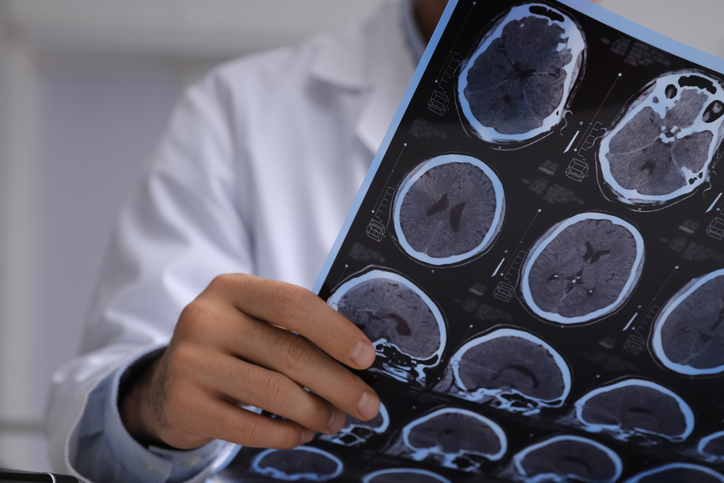Brain-Related Trauma: Identifying and Addressing Traumatic Brain Injuries (TBIs)
September 10, 2024
Categories: Brain & Neuro
Injuries to the brain can arise from events like vehicular accidents, a sports injury, or a severe fall. It’s important to get ahead of anything that impacts the brain and greater nervous system in order to prevent undesirable consequences down the road.
Dr. Alex Rugino, neurosurgeon at Riverside Healthcare, offers key insights about neurotrauma and the different types of brain-related injuries that can occur.
Alex Rugino, DO
Understanding Traumatic Brain Injury
Traumatic brain injury (TBI) is a broad category ranging from mild to severe. A common mild TBI is concussion, which stems from a blow to the head or a sudden jolt that “shakes” the brain inside the skull.
Concussions typically don’t show up on imaging, so it’s important to understand the symptoms: headaches, confusion, dizziness, and sometimes temporary loss of consciousness. Generally, concussions will resolve with time and rest. More severe TBIs might include loss of consciousness for an extended period of time, resulting in potentially permanent damage.
Dr. Rugino notes that any patient coming into the ER undergoes an “ABC” analysis: airway, breathing, circulation. Once physicians know a patient is stable, the next steps are to perform a physical examination, neurological assessment, and imaging.
“It’s crucial that we monitor for things like swelling, bleeding, or increased intracranial pressure that can lead to more permanent damage. That would include cognitive impairments, physical disabilities, and emotional or behavioral changes,” he states.
Treatment for TBI
Treatment for traumatic brain injury depends on the type and severity of the injury. For example, a patient may require surgery to decrease intracranial pressure. There are also procedures that fix spine fractures and reduce the risk of paralysis.
“We are brain and spine and peripheral nerve specialists. Riverside Medical Center at this point, now that we have our three neurosurgeons, our full complement at 24/7 coverage, we can pretty much deal with it all,” shares Dr. Rugino.
Care also occurs in three stages: acute, rehabilitative, and follow-up. There are support services available as well to help patients deal with any emotional trauma or subsequent mental challenges they may encounter.
“If you have permanent physical disabilities and frustrating cognitive issues, like memory loss, it can be as debilitating as a physical injury. It all feeds into itself, because it's hard to get back to a ‘normal life’ when you've experienced permanent disabilities,” notes Dr. Rugino.
Advancements in TBI Care: Looking Toward the Future
Advancements in neurotrauma care include minimally invasive surgery, more precise neuroimaging options, and rehabilitation technology like robotics and electrodes.
“I know there are some tests and trials having to do with implanting an electrode in the brain to make use of an otherwise paralyzed arm or leg. It's there. It's coming about. It's not perfected yet, but it's all coming about.”
Learn more about neurosciences and our neuroscience team at Riverside.